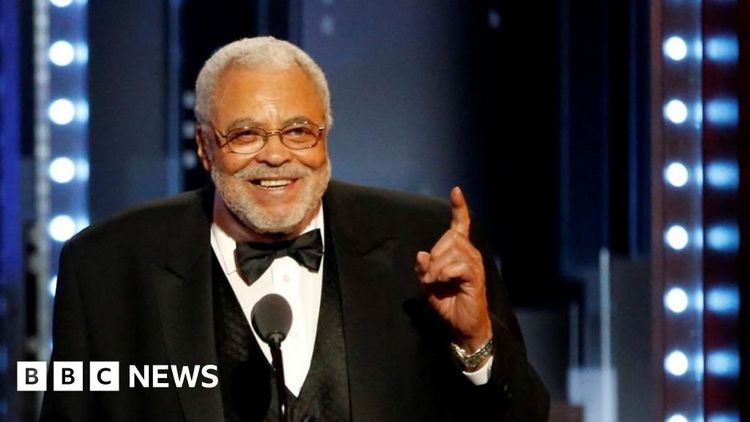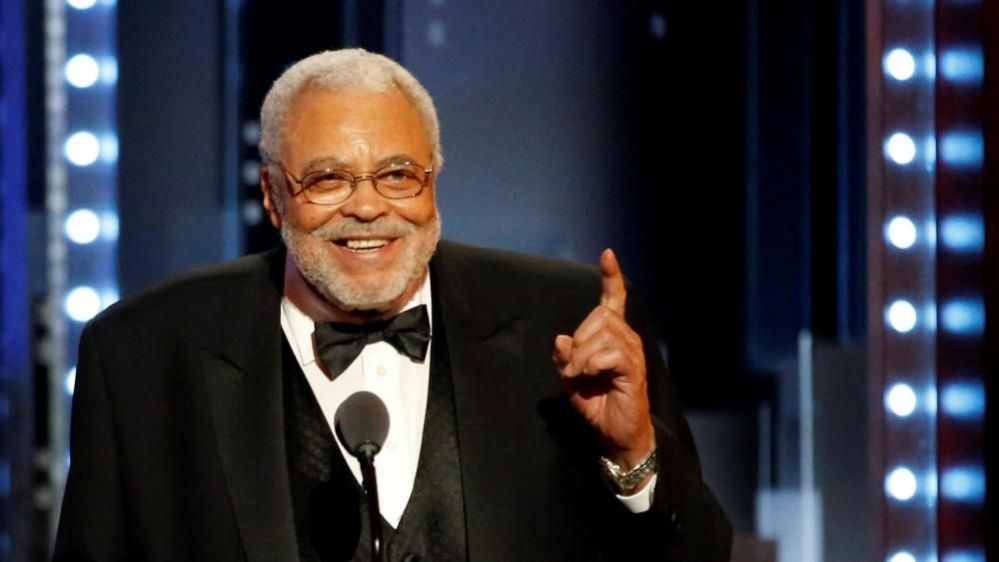Obituary: James Earl Jones, the voice of Darth Vader and Musafa

From Stutter To Iconic Voice Of Darth Vader
James Earl Jones may have had an impressive acting career spanning almost six decades, but what he will be most remembered for is his remarkable voice.

It was a rich, resonant, magnificent deep bass; some have likened it to the sound that "Moses listened to when he received words from God."
He provided the iconic voice of Darth Vader in the original Star Wars trilogy, using just his words to evoke the complete essence of the mysterious 'Force'.
Recently, he could be heard saying "This is CNN" in a low, serious tone, emphasizing the importance of the network's tagline.
James Earl Jones was born on January 17, 1931, in Mississippi and has a mixed heritage including African-American, American Indian, and Irish roots. His father, Robert Earl Jones, left the family shortly after his son was born.
The household was quite large, consisting of 13 individuals, and it was decided that Jones would stay with his grandmother in Memphis "to lighten the load." However, when he was being taken to her home, he tightly grasped onto the car, refusing to let go.
"It was the only way I knew how to show my desire to be with them," he remembered. "And they embraced that."
The experience was incredibly distressing, leading him to develop a stutter that persisted into his teenage years. It became so severe that, for a period, he chose not to speak at all and communicated solely through writing.
Photo credit: Harry Benson
James Earl Jones gazes into a mirror, preparing himself before stepping on stage for his performance in the 1970 production of The Great White Hope.
Interestingly, it was his stutter that led him to pursue acting, fostering a lasting love for the art of communication.
During his high school years, a caring teacher recognized his knack for poetry and motivated him to share his work by reading it aloud in class. Jones found that his stuttering was less noticeable when he recited from memory. This newfound confidence led him to participate in debates and engage in public speaking contests.
While attending the University of Michigan, he developed a passion for theatre. After finishing his military service, he moved to New York to pursue a career in acting. For a while, he lived with his father, not in an effort to mend their relationship, but rather to save money on housing expenses.
"I've missed my chance to really connect with him as a father," he admitted. "If you don’t grasp that from the start, there’s no way to make up for lost time.” However, Robert, who had attempted to pursue acting himself, encouraged his son's dreams but set one requirement.
"I can't make a career out of this," he said to the young James. "If you're going to get involved in this field, do it for the passion, not for the money." It was solid advice.
Image credit: Stanley Bielecki Movie Collection
James Earl Jones and Jane Alexander are featured in a scene from the film adaptation of The Great White Hope, which led to Jones receiving an Academy Award nomination.
Even though it was challenging for black actors to secure roles, Jones established his reputation through Broadway shows like Jean Genet's play, The Blacks. In this production, black performers wore white makeup as a way to challenge and overturn colonial stereotypes.
He was lucky to experience a time when New York theater was transforming into something new. It was no longer necessary to be white and middle class to find success in this world.
He performed Shakespeare, taking on roles like Othello, King Lear, Oberon, and Claudius. He also tackled contemporary pieces, including Eugene O'Neill's *The Iceman Cometh*, John Steinbeck's *Of Mice and Men*, and an all-black rendition of Tennessee Williams' *Cat On A Hot Tin Roof*.
In 1968, he received a Tony Award for his performance in a play featuring a character inspired by the legendary African American boxer Jack Johnson in *The Great White Hope*. He went on to earn an Oscar nomination for his role in the film adaptation, becoming only the second Black actor to receive this recognition after Sidney Poitier.
His debut in film was playing a slim young member of Slim Pickens' flight crew in Stanley Kubrick's satirical movie, Dr. Strangelove.
He went on to feature in a diverse range of films including Conan the Barbarian, Coming to America, Field of Dreams, Patriot Games, and Clear and Present Danger. He considered himself a versatile actor who accepted any role that came his way and provided a paycheck.
In a conversation with the Guardian, he acknowledged, "Denzel Washington, Sidney Poitier, Robert Redford, Tom Cruise—these actors have carefully crafted their careers. As for me, I'm simply on a path. Whenever I come across a new opportunity, I just think, 'Sure, I’ll take that on.'"
Photo credit: Getty Images
James Earl Jones performing as Othello alongside Christopher Plummer in the role of Iago.
Children everywhere are familiar with the story: he was chosen to provide the voice for Darth Vader in the original Star Wars trilogy. The actor in the suit, Dave Prowse, spoke with a prominent West Country accent. While his voice worked well for promoting road safety as the Green Cross Code man, it didn’t quite capture the intimidating tone of a dark Jedi seeking cosmic domination.
Jones requested not to receive credit for his role, believing it to be just another type of "special effect." However, after the films shattered box office records, he was convinced to reconsider his stance.
He gained fame as a television actor, portraying the older version of Alex Hailey in "Roots: The Next Generation" and earning one of his two Emmy Awards for his starring role in the American drama "Gabriel's Fire." His deep, distinctive voice was featured in "The Simpsons" and as the character Mufasa in "The Lion King."
He also featured in the initial episodes of Sesame Street. To evaluate the show's effectiveness, the producers presented excerpts to children. The clip that resonated the most was one where James Earl Jones stood still and counted slowly from one to ten.
In 2011, he was honored with an honorary Oscar in recognition of his impact on the film industry. He accepted the award on the stage of a London theater while performing alongside Vanessa Redgrave in the play, Driving Miss Daisy.
James Earl Jones, with his commanding voice, became a prominent figure in commercial voiceovers, documentaries, and video games. He lent his voice to SeaWorld in Florida and provided narration for NBC's Olympic broadcasts. In fact, someone recognized his talent and asked him to narrate all 27 books of the New Testament.
He was glad to lend his voice for commercial projects, but he was more hesitant when it came to political issues. His father had been blacklisted during the McCarthy era, so he preferred to avoid controversial topics.
Photo credit: PA wire
The person who portrayed Darth Vader physically was Dave Prowse. However, George Lucas believed that the character's voice needed to be deeper and more resonant, so he enlisted James Earl Jones to lend his vocal talents to the role.
He once stated, "I offer my voice for various projects, but I don’t sell my endorsement. I’m willing to do voice-over work, but endorsing something requires a deeper level of commitment. My political views are deeply personal and based on my own experiences."
He never stepped back from his career, continuing to work well into his 80s. The young man from Mississippi, who struggled with a severe stutter, will be remembered as an influential stage performer with an unforgettable voice.
In 2016, there was a final appearance as Darth Vader in Rogue One: A Star Wars Story.
His words still held the same intense impact they had four decades ago, introducing a fresh generation of kids to the enduring fear of the Dark Side.















































